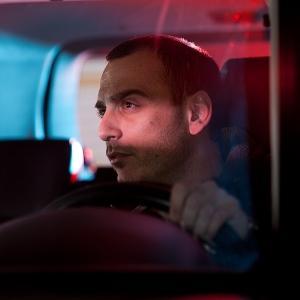No Refusal DUI Checkpoints Raise Legal Questions
 Illinois is one of nine states receiving federal funding to participate in the National Highway Traffic Safety Administration's "No Refusal" initiative. The initiative centers around police setting up so-called No Refusal checkpoints, which are named as such because the police there have access to a streamlined procedure for acquiring search warrants. This allows them to perform blood alcohol concentration (BAC) tests over a driver's objection. However, some states have refused to implement these DUI checkpoints, citing concerns that they may be violating their citizen's Fourth Amendment rights, which protect them from unreasonable searches and seizures.
What No Refusal Checkpoints Are
Illinois is one of nine states receiving federal funding to participate in the National Highway Traffic Safety Administration's "No Refusal" initiative. The initiative centers around police setting up so-called No Refusal checkpoints, which are named as such because the police there have access to a streamlined procedure for acquiring search warrants. This allows them to perform blood alcohol concentration (BAC) tests over a driver's objection. However, some states have refused to implement these DUI checkpoints, citing concerns that they may be violating their citizen's Fourth Amendment rights, which protect them from unreasonable searches and seizures.
What No Refusal Checkpoints Are
When a person refuses to consent to a BAC test, the police have the option of seeking a warrant from a judge to get the person's blood tested to determine the individual’s alcohol level. No refusal checkpoints are named that way because of a specialized procedure that the police have available to them to order blood tests for drivers who refuse to take a Breathalyzer test. The judges, who are ordinarily on call, are made aware that they will be participating in a No Refusal weekend so that they can prepare to provide police with speedy access to warrants.
Additionally, during the operation of these checkpoints, many police stations will have a nurse on staff so that the blood test can be performed at the station rather than requiring the police to bring the person to a hospital. However, this new initiative is not without its controversy. In fact, 21 other states have the ability to access this program because they allow their police to get warrants via a phone call, but many are refusing to participate, citing concerns about the program's constitutionality because of how easily it provides police access to warrants.
Fourth Amendment Concerns
The constitutional concern that many people express arises out of the Fourth Amendment. This portion of the Constitution protects citizens from "unreasonable searches and seizures." In practice, this means that police usually need to acquire a warrant before they search a person or their belongings, and the use of a BAC tests counts as a search.
Some people are concerned that this No Refusal initiative undermines the protections of the Fourth Amendment because the court's issuing of search warrants should be a careful decision that weighs the need to prevent crime against the individual's right to privacy. This issue is also complicated by the fact that Illinois is an implied consent jurisdiction, which means that there are certain penalties that go along with refusing a BAC test, such as a license suspension.
If you have recently been charged with a DUI or some other criminal offense, contact an experienced Elgin criminal attorney. The The Law Office of Brian J. Mirandola can help protect your rights and your interests in court.







